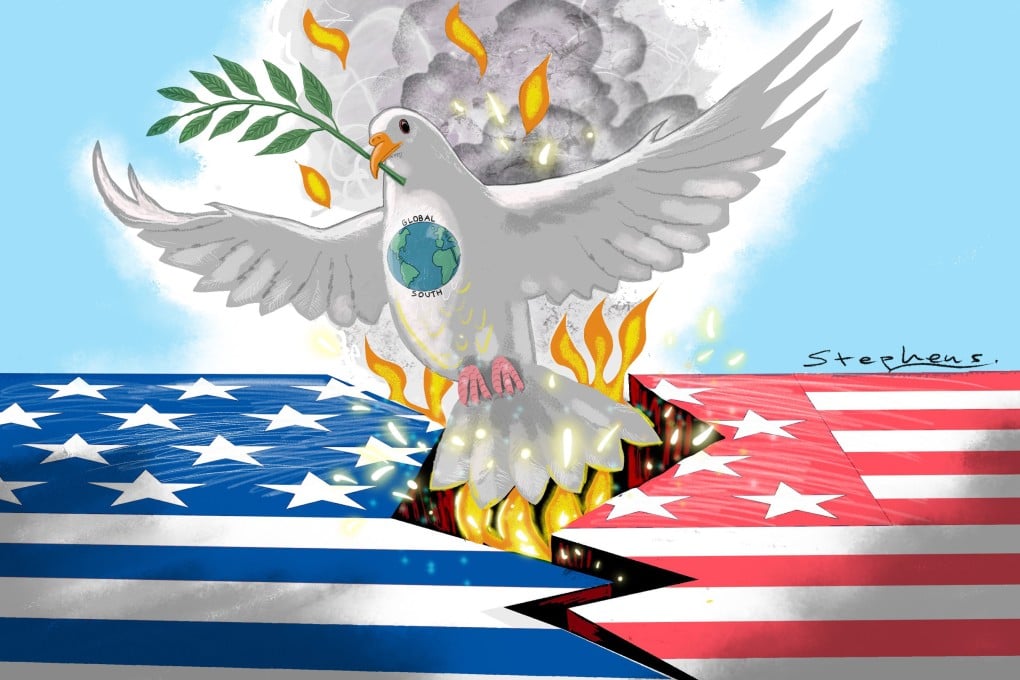Advertisement
Opinion | With US democracy in crisis, Global South must ensure peaceful transition to a more equitable world order
- America’s tunnel vision on China and misreading of the Global South’s aspirations are pushing the realignment of geopolitics towards open conflict
- As a result, developing nations must remain resolute in pursuing collaboration over confrontation
Reading Time:4 minutes
Why you can trust SCMP
19

The stability of US democracy is facing existential challenges. Apart from the risk of a power transfer crisis at home, America is also grappling with a tense reconfiguration of the world’s geopolitical centre away from the Global North. Nations in the Global South must continue to advocate for collaboration over confrontation to facilitate a peaceful transition from the Western-centred world order to a more equitable one.
Despite having five prime ministers in as many years, Malaysia’s stance on the US-China rivalry has remained constant. During his keynote address at the Asia-Pacific Roundtable in Kuala Lumpur last month, Prime Minister Anwar Ibrahim reiterated Malaysia’s call for the two superpowers to coexist for the betterment of the global community.
Malaysia’s consistent non-aligned stance, however, is the exception rather than the norm. In countries such as the Philippines and South Korea, changes in national leadership triggered major shifts in foreign policy. The administrations of Ferdinand Ferdinand Marcos Jnr and Yoon Suk-yeol, for example, have reversed their predecessors’ balancing strategies and adopted a more pro-US posture.
Advertisement
Next year will see two crucial elections with significant geopolitical ramifications. In January, Taiwanese will vote for a new president. A victory for front runner William Lai Ching-te, seen as pro-independence, is likely to escalate tensions in the Taiwan Strait.
The US presidential election in November 2024 carries even more complicated implications. President Joe Biden is widely anticipated to face Donald Trump in a divisive rematch that will exacerbate America’s polarisation. Whatever the election outcome, US-China rivalry is expected to remain tense.
Advertisement
Unlike with the Ukraine crisis, where some Republicans have voiced admiration for Russian President Vladimir Putin, Americans are united on confronting China. Presidential hopeful Vivek Ramaswamy, for instance, proposes to let Russia keep the Ukrainian territory it has occupied if Putin cuts ties with China.
Advertisement
Select Voice
Choose your listening speed
Get through articles 2x faster
1.25x
250 WPM
Slow
Average
Fast
1.25x
